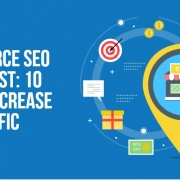Only a few things destroy a company, especially ones related to web development, faster than poorly managed website migration. Altering your domain or implementing new HTTPS is a business move that successful agencies and companies make good use of. But failing to consider all possible sides and effects of such a move can become a major cause in the reduction of organic search traffic. No matter where you live if you’re involved in the process of website migration, then this is the guide for you.
Is It for You?
Whether it’s global or specific to locations, like local SEO Manchester, agencies and others across the globe will always recommend weighing whether or not your company is ready to deal with the possible effects of website migration. The site migration process almost always results in search traffic loss for a while as search engines adjust their indexes. The careful adjustment can minimize these fluctuations in traffic by a lot. In fact, in the best-case scenario, the site might be treated just like the original. However, that is the only best-case scenario, and in reality, site migrations might not offer much change and may possibly keep search engine penalties the same. This is why migrations are often used only to mend broken links and fix other problems in order to improve the content.
Sandboxing:
Migrating sites without first testing the process on a test server is a rookie mistake that might be the end of the whole process before it’s even begun. Confirm whether or not all the redirection links are working properly, and complete all the checks that need to be done in private before you go public. Bear in mind, trying to complete the whole testing process in one go will unavoidably lead to otherwise completely avoidable errors. If the mistakes are bad enough, your site might just be set back by weeks. Patience is key, so take your time to look for the best in your area, like local SEO Manchester.
Making Your Move:
If your migration is well planned and cleanly executed, then it might not affect your search traffic by much, but at the same time, all is well that is planned well. You should plan ahead for a possible dip in search traffic for a while. And for that reason, it’s best to plan on moving sites at a slow time of the year. Monitor your searches, and make use of monitoring programs. There are times when searches are rapid-fire and high in quantity, and then there are times when search engines start rusting. Site migrations before or during the holidays are a terrible idea. While the aim should be to avoid losing traffic, make sure that it’s during a slow time for business if you do.
Crawl Your Site Beforehand:
Web crawlers copy webpages and place them for the later procession by the search engine to index the downloaded pages. This provides the user with quick access to the webpages. Crawl your site and save the crawl for later use. Crawling is important because it allows you to make sure that nothing from the old site ends up getting lost in the transitional process and presents you with an opportunity to identify crawl errors. Make sure to remove or fix any links that lead to nowhere. Keep in mind that site crawls might not identify all your pages.
Map the URLs:
Keep a few spreadsheets listing every URL, old or new. Ideally, during a website migration, the old pages exist on the new site. Deleting a page will remove its ability to entrap search engine traffic. Even after all that, if you remove too many pages, search engines might conclude that the old site and new ones are different, and you might drop rankings. Keeping a map of all these links will allow you to redirect your old pages to the new ones and help keep them connected through the use of connectivity programs.
If you try going through a site migration without taking SEOs into account, you will lose search traffic. You can even hire area-specific services like local SEO Manchester services according to your area, which you can find with searches like “web development company Manchester”.









Leave a Reply
Want to join the discussion?Feel free to contribute!